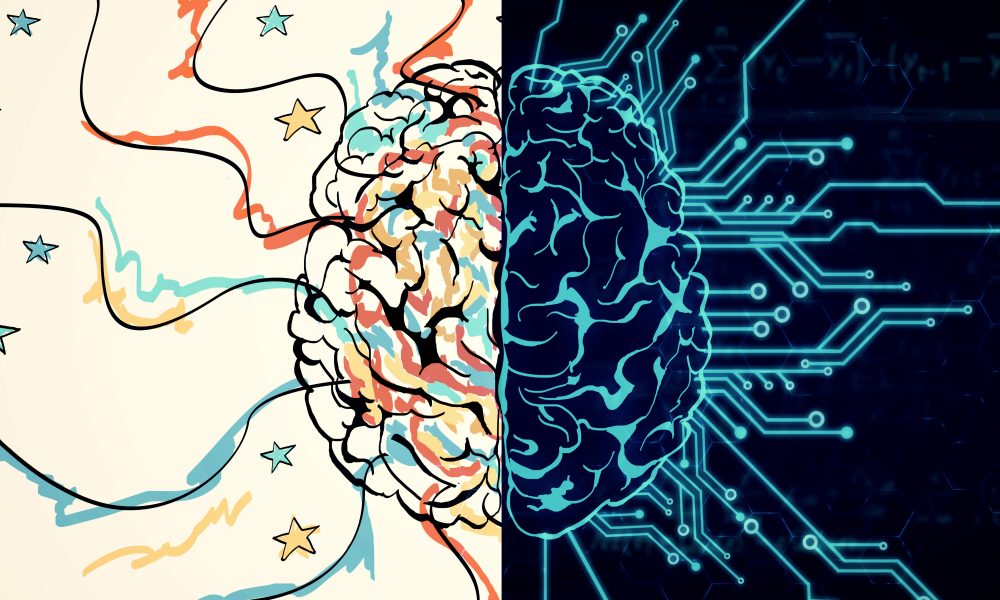The Rise of AI in Mental Health: Pros, Cons, and Ethical Considerations
March 9, 2023 - Reading time: 10 minutes

This article was written by Dr. Adeel Sarwar. As a clinical psychologist, I am intrigued by the potential of AI in the field of mental health.
These chatbots, such as Replika and Woebot, are designed to provide emotional support and companionship to users. Utilizing advanced Natural Language Processing (NLP) techniques, they simulate conversations that mirror interactions with a human, making them an accessible form of emotional support for many.
The Benefits of AI in Mental Health Care
AI-powered chatbots have been used for a variety of purposes, from answering general health questions to providing emotional support. Woebot, for example, is an app that uses cognitive-behavioral therapy (CBT) techniques to help users manage anxiety and depression.
Replika, another AI-powered chatbot, is designed to provide emotional support and companionship. These apps use natural language processing (NLP) to understand and respond to users' messages, creating a conversational experience that feels similar to talking to a real person.
Understanding AI Chatbots in Therapy
| Woebot |
Empathized with a user's anxiety about work and asked probing questions to understand the user's feelings. When a user expressed anxiety about work, Woebot empathized, "Anxiety can be a real monster to handle. I’m sorry that you’re dealing with it." It further probed with questions like, "Do you think this anxiety might be serving you in some way?" |
| ChatGPT |
Impersonated Freud to discuss the root of stress and offered advice as a supportive friend. While impersonating Freud, ChatGPT might say, "often, stress is the result of repressed emotions and conflicts within oneself." When offering advice as a close friend, it might suggest, "Be kind to yourself—you’re doing the best you can and that’s all that matters." |
| Koko |
Used GPT-3 to provide emotional support and convey the message that the user is not alone. This emotional support network uses GPT-3 to help draft messages like, "It’s hard to make changes in our lives, especially when we’re trying to do it alone. But you’re not alone. |
The use of AI chatbots in therapy work shows promise in providing affordable and personalized support 24/7, based on tried and tested therapy techniques
Advantages of AI Chatbots
The main advantage of these chatbots is their accessibility. They are available 24/7, offering support anytime, anywhere. This is particularly beneficial for individuals in remote areas, with limited mobility, or those who cannot afford traditional therapy.
The Risks and Limitations
However, concerns exist regarding the use of AI in mental health.
- Inadequacy for Complex Issues: AI chatbots might not be equipped to handle severe mental health issues like major depression or bipolar disorder.
- Potential Replacement Risk: There's a risk of them being seen as a replacement for professional therapy, which they are not.
- Data Privacy: With the collection of sensitive user data, there's a need for stringent privacy and security measures.
How do ai chatbots differ from human therapists
AI chatbots differ from human therapists in several ways. While they can provide support and guidance on a 24/7 basis, allowing individuals to access help whenever and at the frequency they need it, they are unable to engage in discursive practices, provide reasons for their therapeutic concepts, and explain without fully comprehending their limitations
Additionally, chatbots cannot fully replicate the therapeutic alliance between a human therapist and a client, which is thought to account for a large percentage of therapy's effectiveness
Furthermore, while chatbots can deliver elements of cognitive behavioral therapy and provide support for mental wellness, they are not a replacement for human therapists
The relationship between a therapist and a client is built on trust, intimacy, and emotional intelligence, which are aspects that AI chatbots cannot fully duplicate
Therefore, while AI chatbots show promise in treating anxiety and depression, they are not a substitute for human therapists
Despite these concerns, acceptance is growing. A survey showed that 45% of people are open to using chatbots for mental health support. Their effectiveness is also notable - studies have shown that chatbots like Woebot and Replika can significantly reduce symptoms of anxiety, depression, loneliness, and social isolation.
Ethical Considerations and the Role of Human Connection in Therapy
Ethical issues are paramount. For instance, there's the risk of chatbots reinforcing negative thinking patterns. If a chatbot always offers reassurance, it might lead to dependency. Ensuring ethical AI practices and safeguarding user data are crucial steps in their deployment.
Another concern is the privacy and security of user data. As chatbots become more sophisticated, they may collect more sensitive information about users, such as their mental health history and personal preferences. It is important that chatbot developers take steps to protect user privacy and ensure that user data is not sold or shared with third parties.
The Future of AI in Mental Health Care: Opportunities and Challenges
The future looks promising but is not without challenges. As the technology evolves, so must our understanding and regulation of these tools. Chatbots should complement, not replace, traditional therapy. Continuous evaluation of their effectiveness and ethical implications is necessary.
AI-powered chatbots in mental health represent a significant step forward in making mental health support more accessible and less stigmatized. While they should not be seen as a panacea, their potential in providing early support and managing symptoms is undeniable. As we navigate this new landscape, it's crucial to balance the benefits with mindful consideration of their limitations and ethical implications. The goal is not to replace human connection in therapy but to enhance it with the support that these innovative tools can provide.
In conclusion, the use of AI-powered chatbots in mental health is still in its infancy, but presents an exciting opportunity to provide support and guidance.

